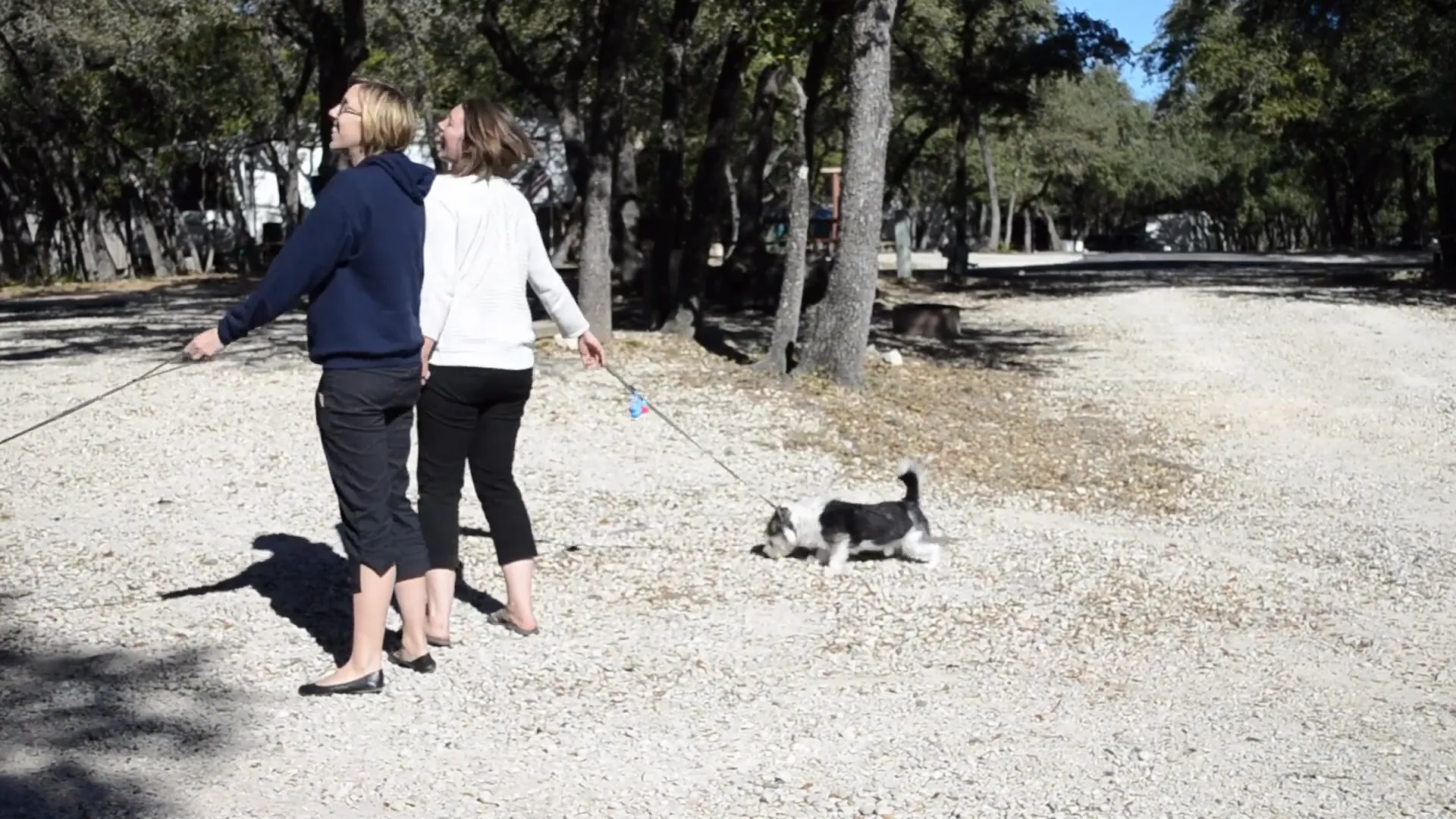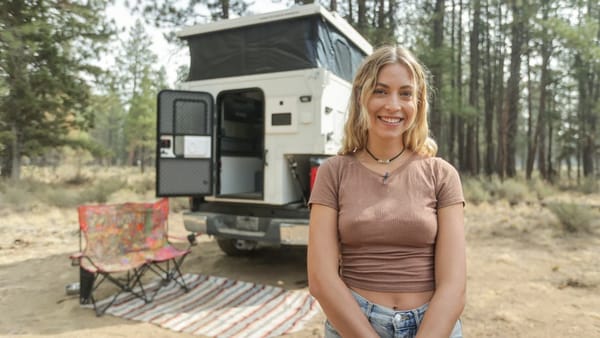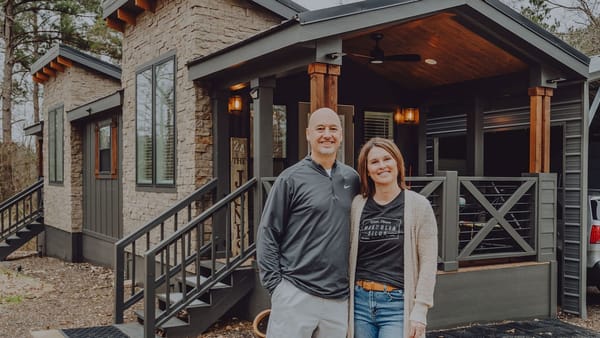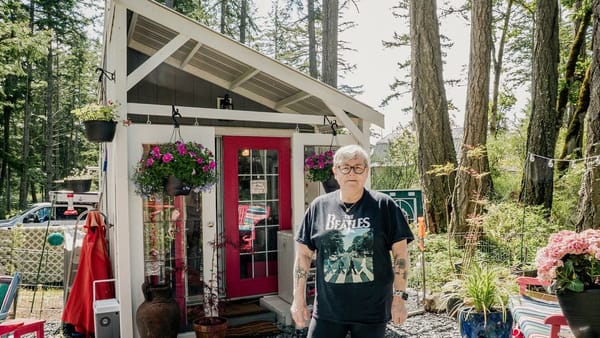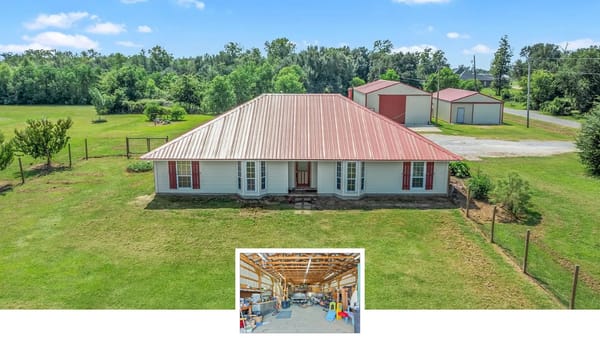They Sold the House and Moved Into a Teardrop. Turns Out, It Fits.
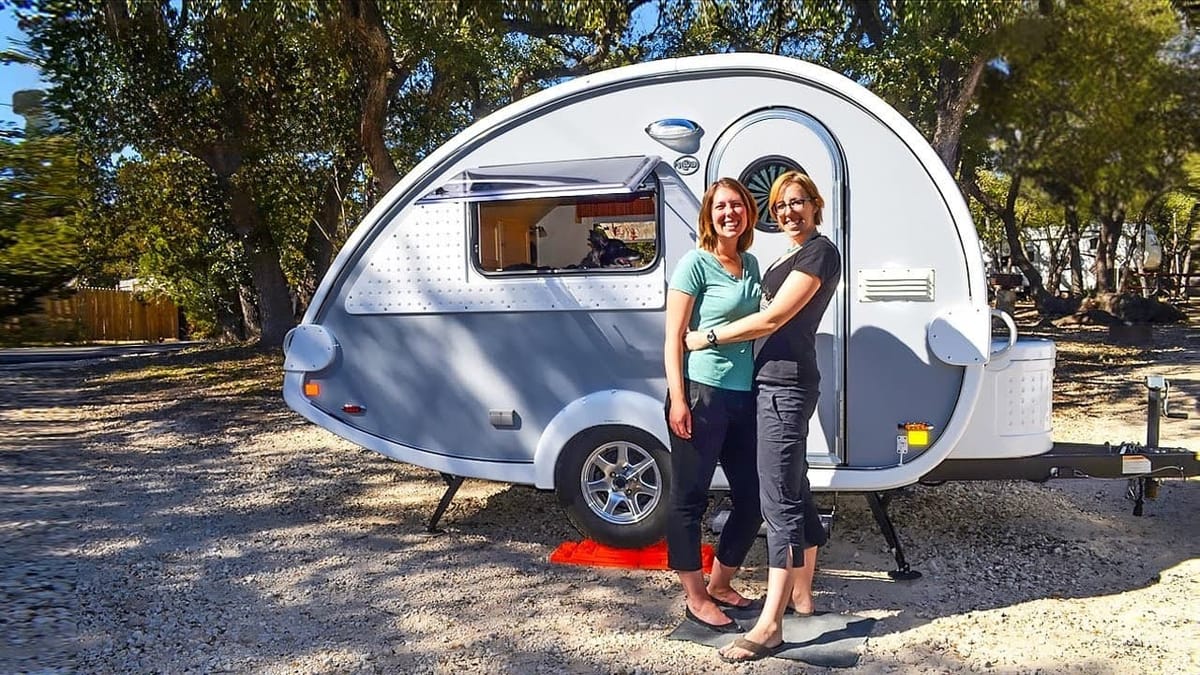
Valerie and Jessi ditched their San Francisco grind and squeezed life into a 15-foot teardrop trailer. Four months in, they’re not looking back.
So They Sell the House and Shrink Life Down
Picture two ambitious people in San Francisco, sprinting on that treadmill where more work means more pay means… somehow more bills. They finally just hit pause and picked a smaller life on purpose, swapping the big city setup for a teardrop on wheels. Sounds drastic, but you can see the relief all over them.
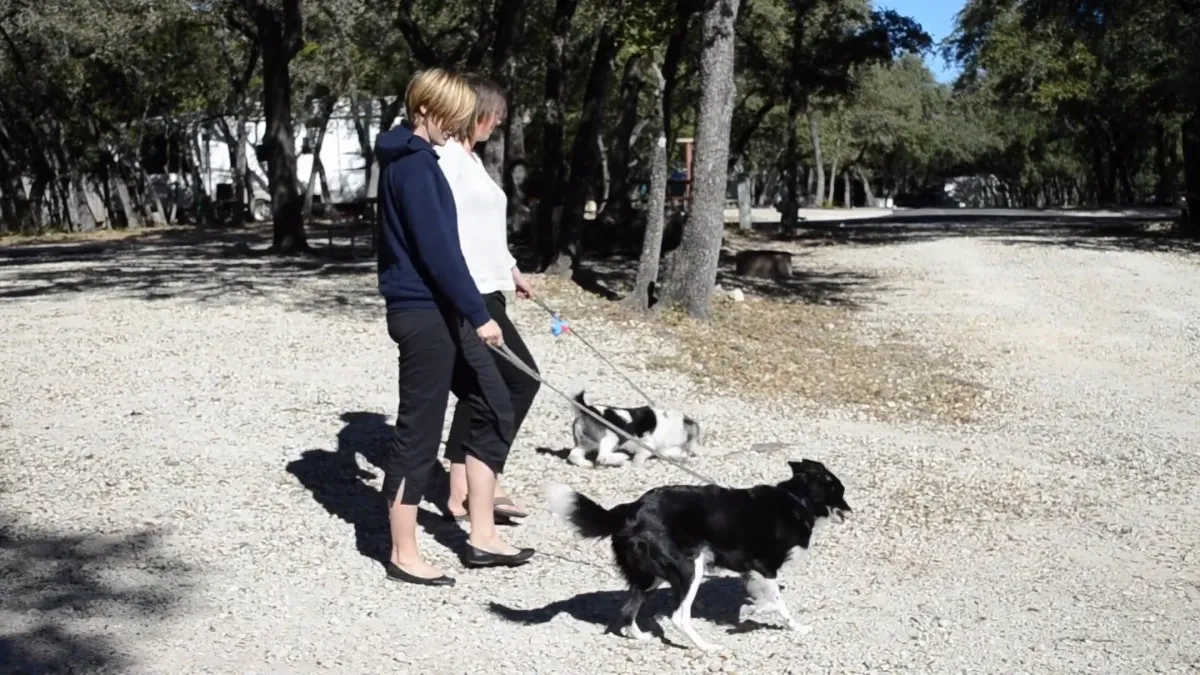
They were torn between a tiny house and a teardrop. The thing is, a tiny house is basically a stubborn rectangle—hard to park, especially in California. A teardrop is nimble, light enough for their mini truck, and strangely complete: bed, bath, kitchen, desk—the whole package in a little bubble.
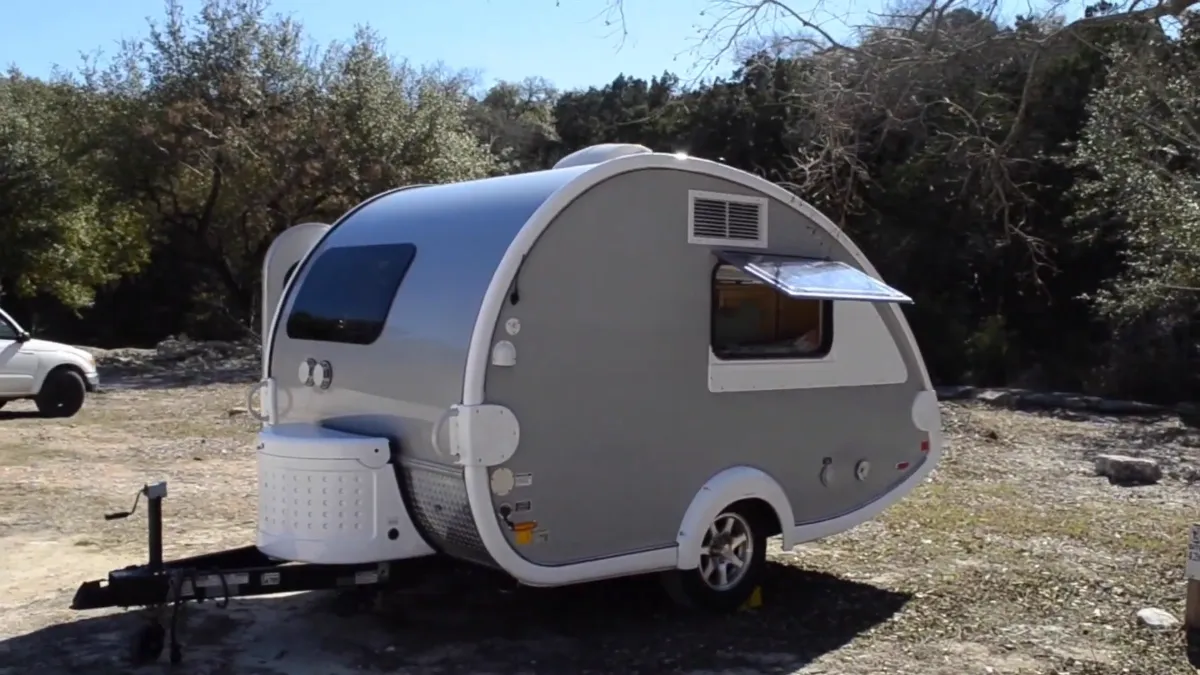
The route started simple: grab the trailer in Arizona, wander the Southwest while it’s warm, slide to the Southeast for winter, then climb up the Northeast and coast across Canada in spring. That was the plan. Now they’re talking South America, Europe—the kind of scope creep that happens when your house loves to move.
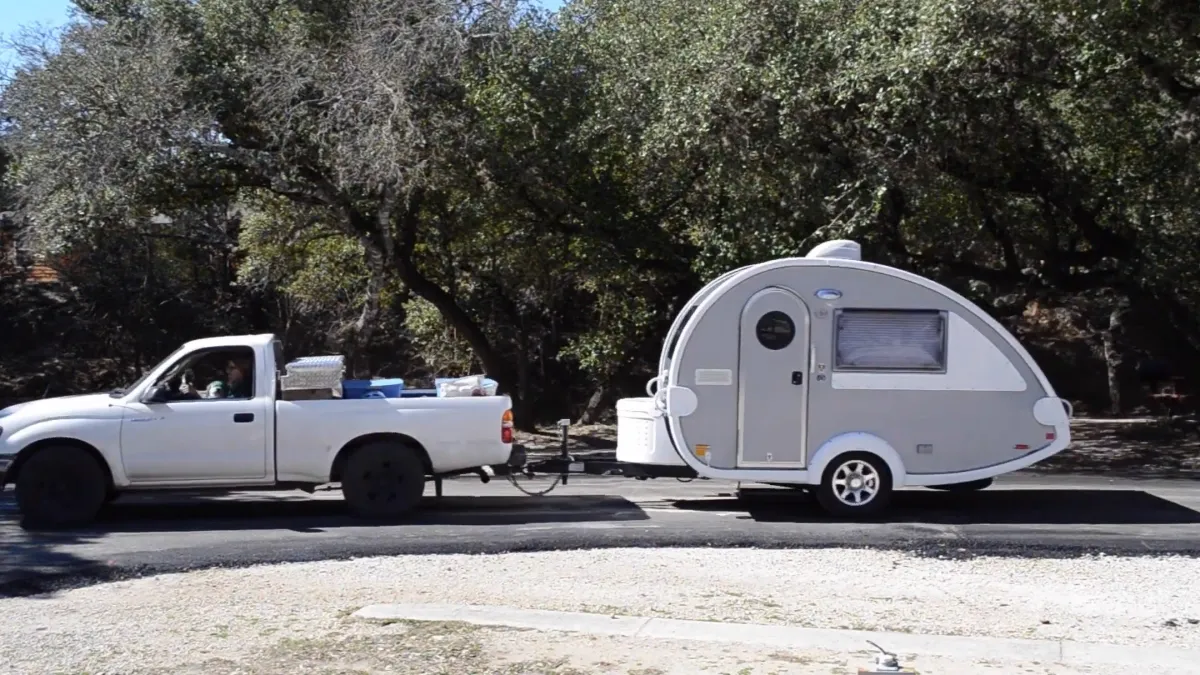
The Little Camper That Somehow Has Everything
Heat and A/C aren’t luxuries here—they’re buttons. The propane heater blasts this tiny space from chilly to cozy in about five minutes, to the point where they end up clicking it off again. Small box, fast warm-up.
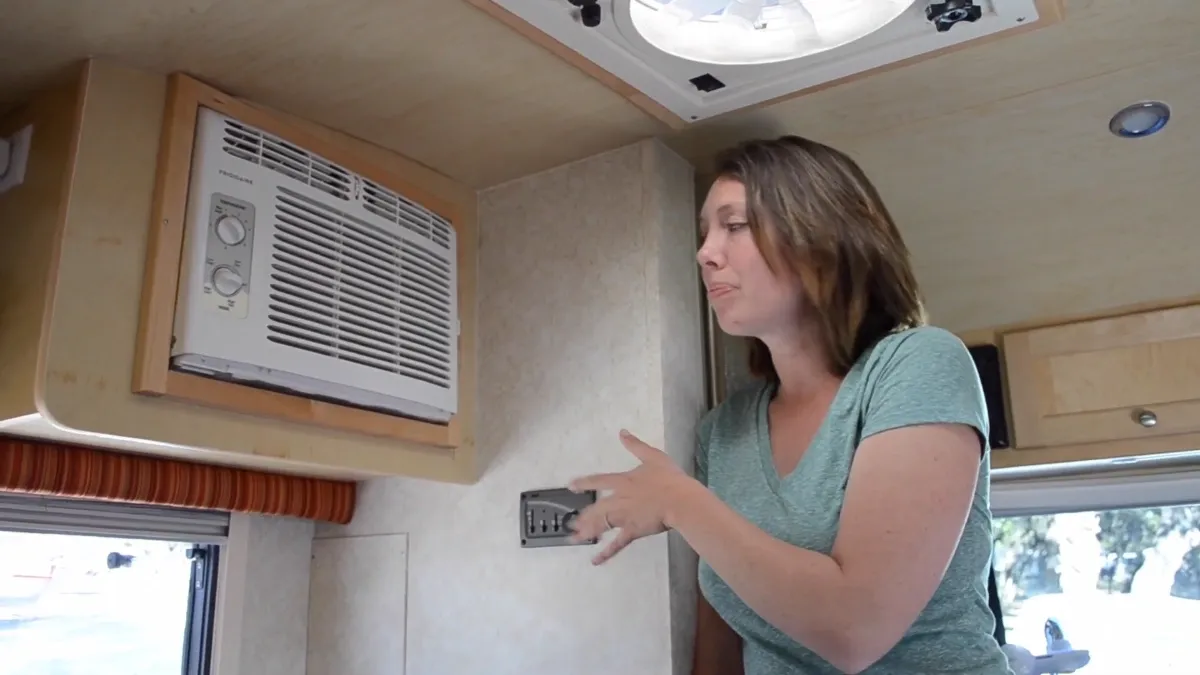
Up top is the vent fan that flips directions like a switch hitter, pulling out cooking smells or pulling in fresh air. Crack the roof hatch, and it even helps with that sneaky overnight condensation. The window screens and blackout shades do their part too—quiet little upgrades that matter a lot at 2 a.m.
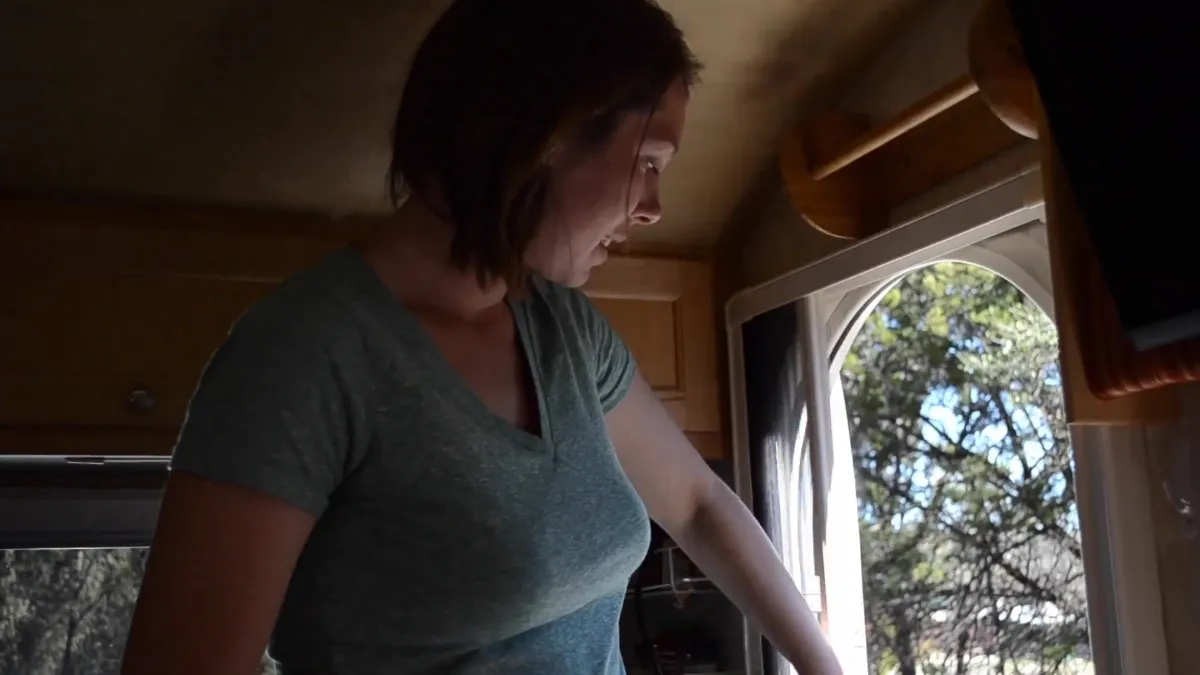
Yes, there’s a full bathroom tucked in here—shower, toilet, mirror, the works. They usually shower at camp bathhouses, but having the onboard setup is a sanity saver on weird weather days. It’s the kind of tiny luxury that keeps the whole experiment from feeling like roughing it.
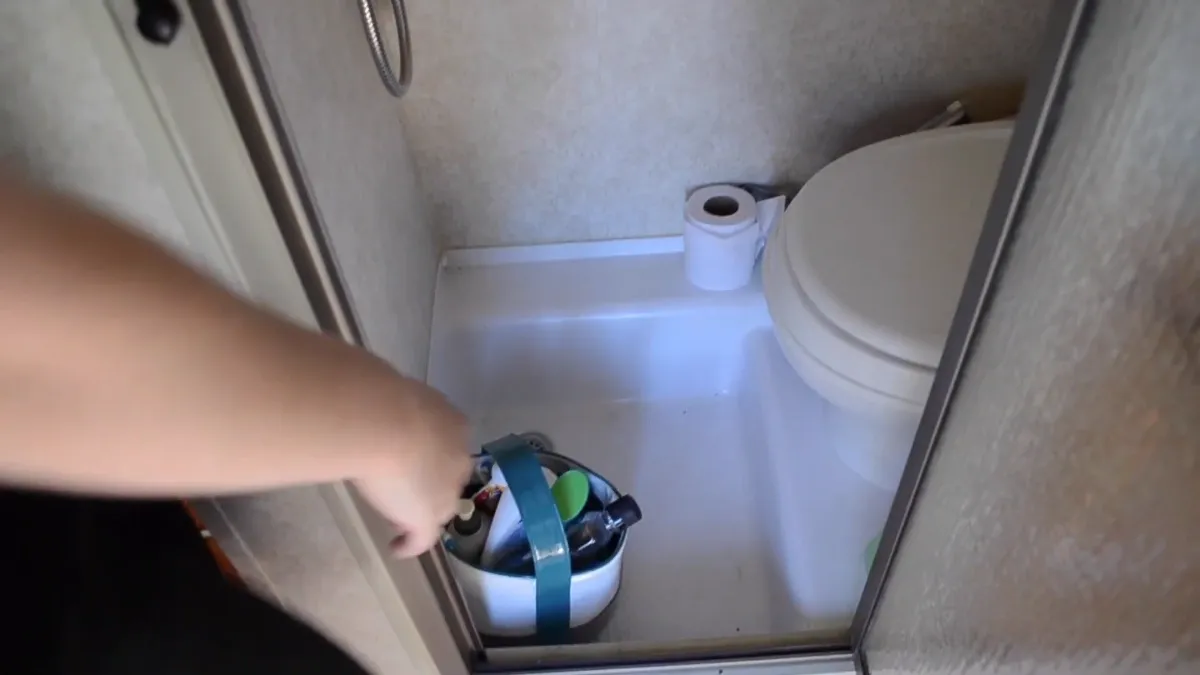
Above the bed is a small shelf with pretend plants (low maintenance, zero guilt) and a couple of headlamps parked where they’re easy to grab. And there’s the little lifeline: a Verizon Jetpack that keeps work possible when campground WiFi taps out. Not glamorous, but holy essential.
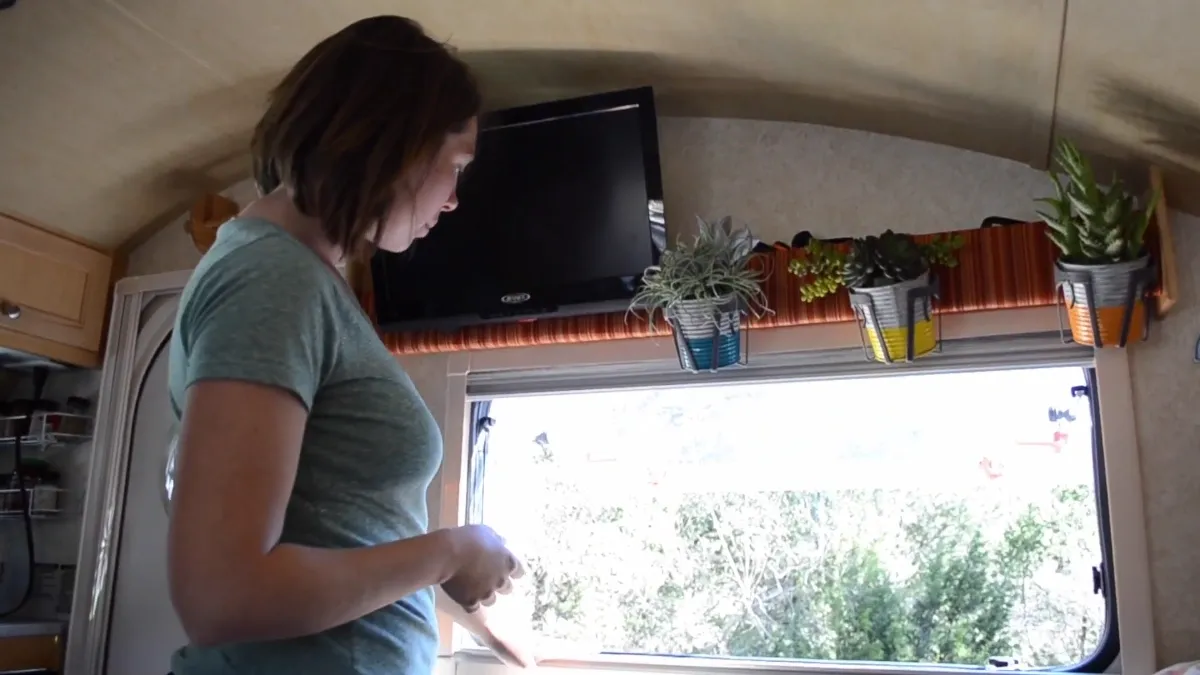
Mornings run on an electric kettle and a French press—oats and coffee without a fuss. When they feel like cooking more, there’s a two-burner gas stove that lights quick and cleans up fast. Small kitchen, low drama.
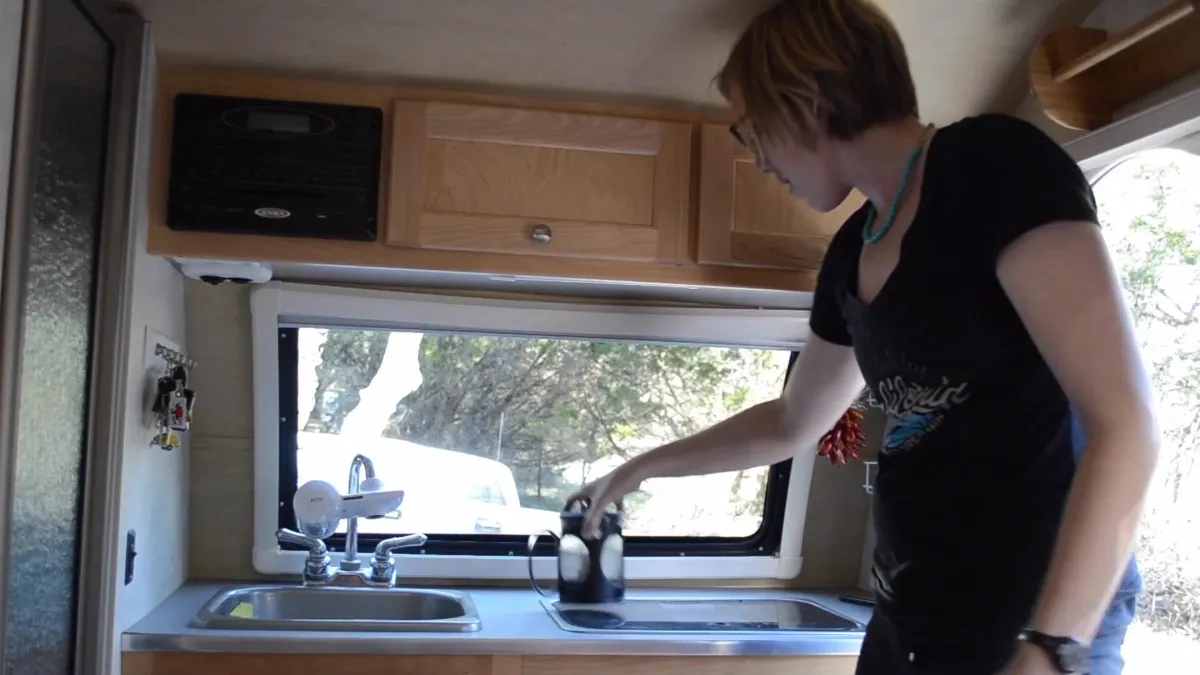
Money Stuff Nobody Brags About
Monthly costs got simpler: no mortgage, no car payments, no stack of utilities. Campground fees swing a lot, but the month-long stays are the sweet spot—$400 at the park they’re in now. That includes power, water, sewer—the whole grid in one bill.
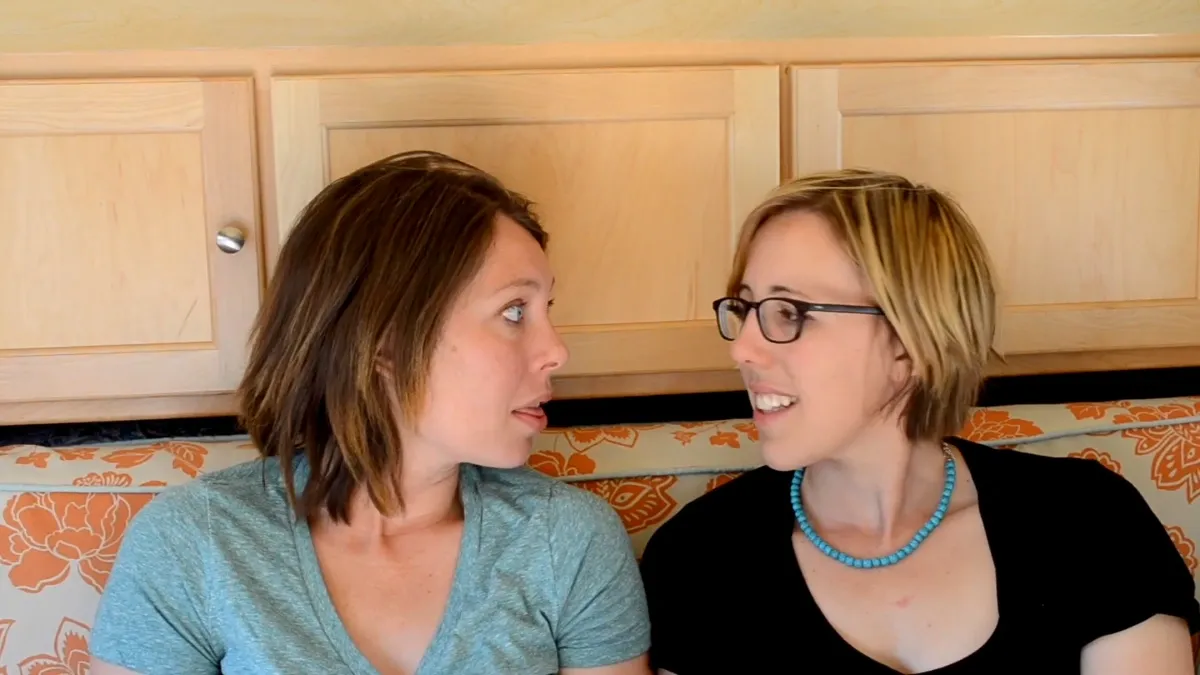
Gas dropped from commute levels to travel levels, which is kind of funny when you think about it. They spend to move, not to sit in traffic. The big surprise bill? Internet. Camp WiFi just can’t keep up.
The Jetpack saves the day and nukes the budget—one month hit $350 for data. Painful, but it turns campsites into offices, and that’s the trade. Beats trying to upload from a picnic bench at the ranger station.
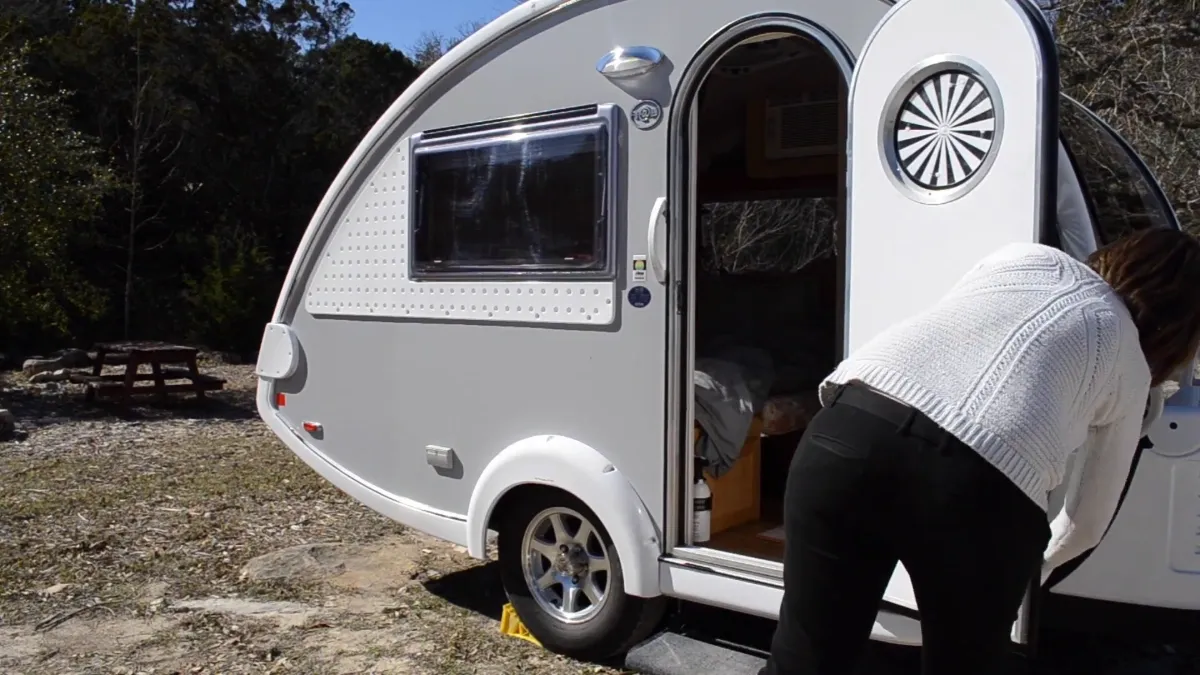
Tiny Space Reality Checks
They’re both 5'10". The ceiling… is not. Head bumps happen—regularly. Everyone laughs until it’s their forehead meeting the curve.
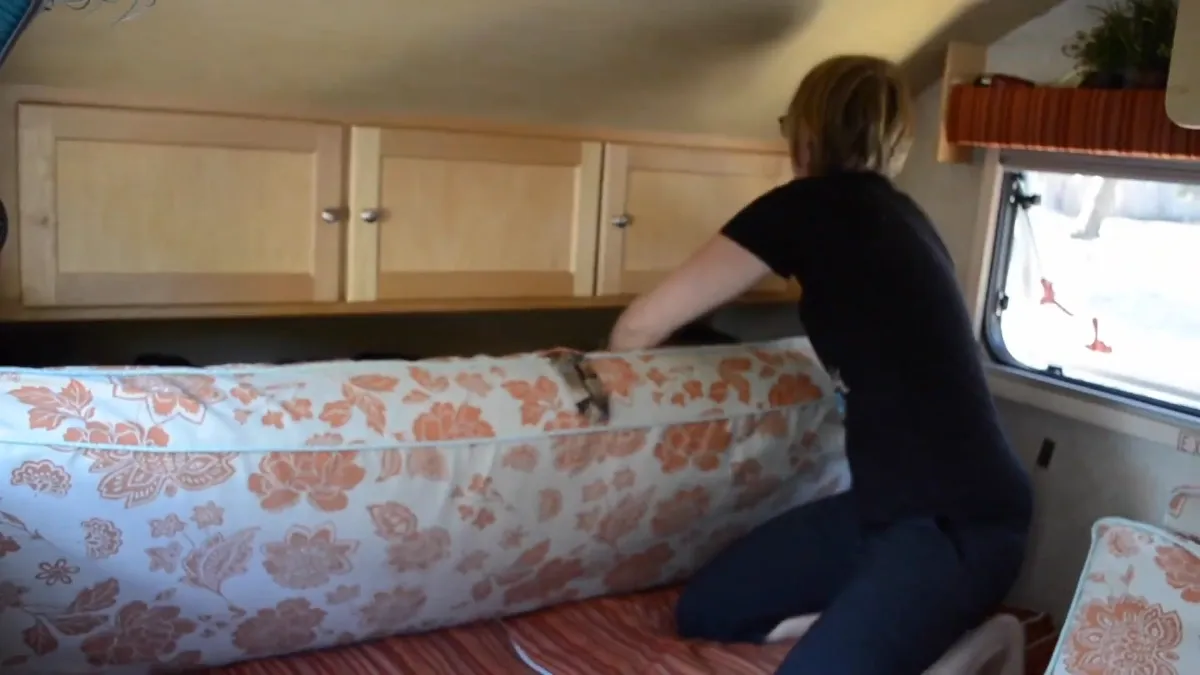
The couch-to-bed shuffle takes a minute, and sometimes that minute feels like a mile when you’re wiped. Mail is a whole other puzzle—everything gets routed to a parent’s address, where it’s photographed and messaged over like a homemade scanning service.
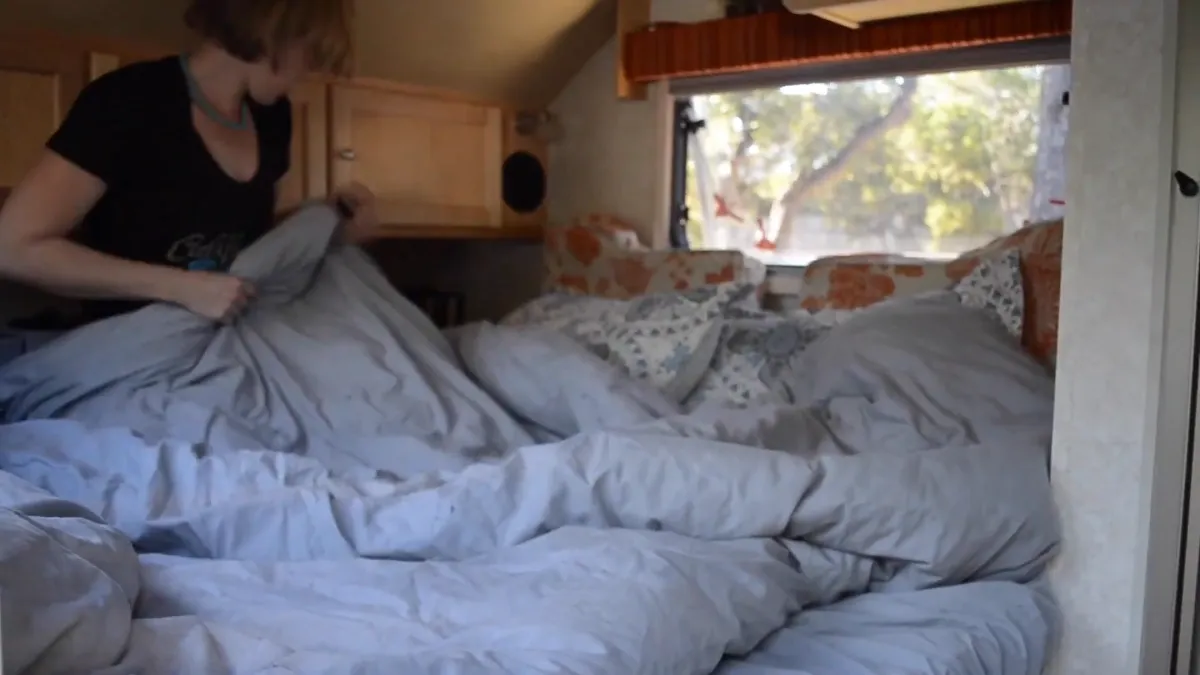
Weather drives the schedule more than anything. Their living room is basically outside, so rain and cold can pinch the day. Pick the wrong coast at the wrong time and you’re playing cards in a jacket.
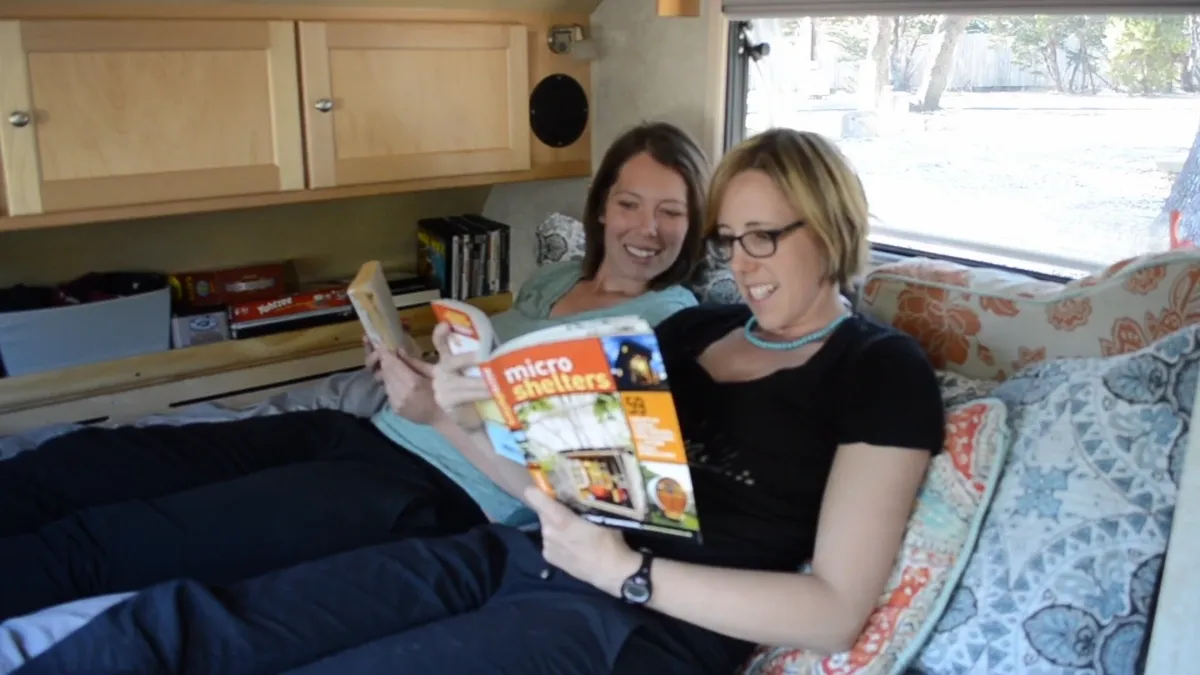
Two Humans, Two Dogs, One King-Size Bed
Maxwell and Sati, the dogs, sleep in the bed too. Somehow it’s still a king in there, and everyone piles in like a Tetris level that just barely works. Cozy chaos, every night.
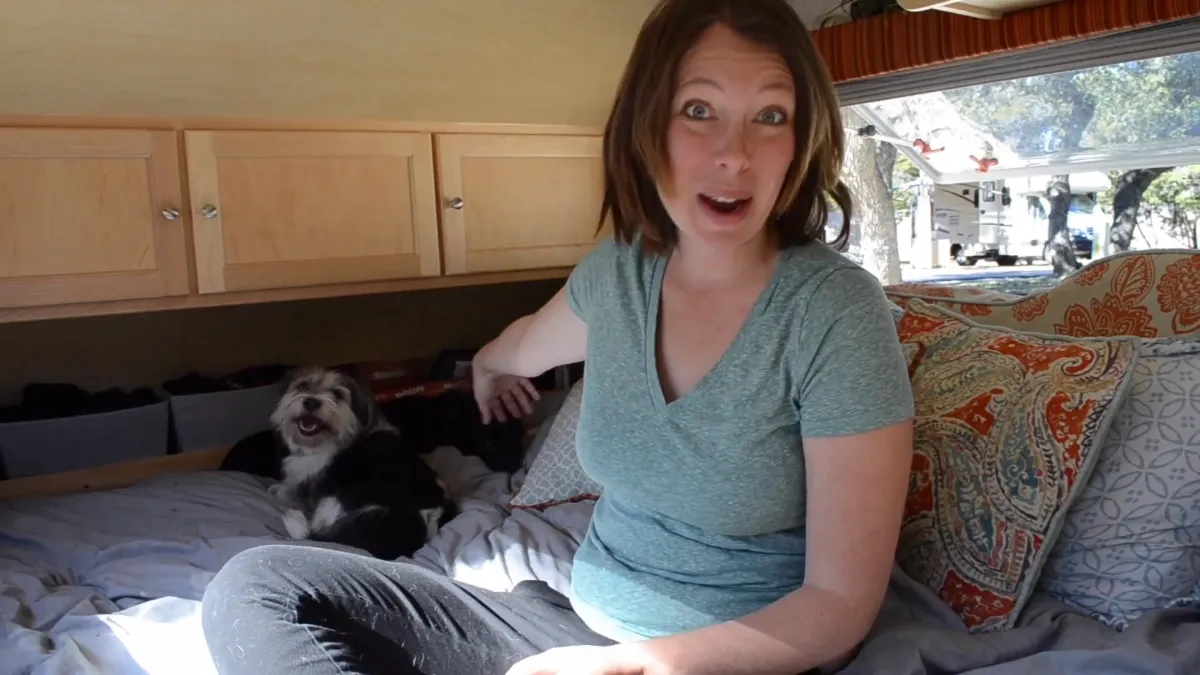
Storage is the quiet hero. Every seat lifts to reveal a cavern—one has a little cupboard where the dog food lives like it owns the place. It’s all within reach but out of sight.
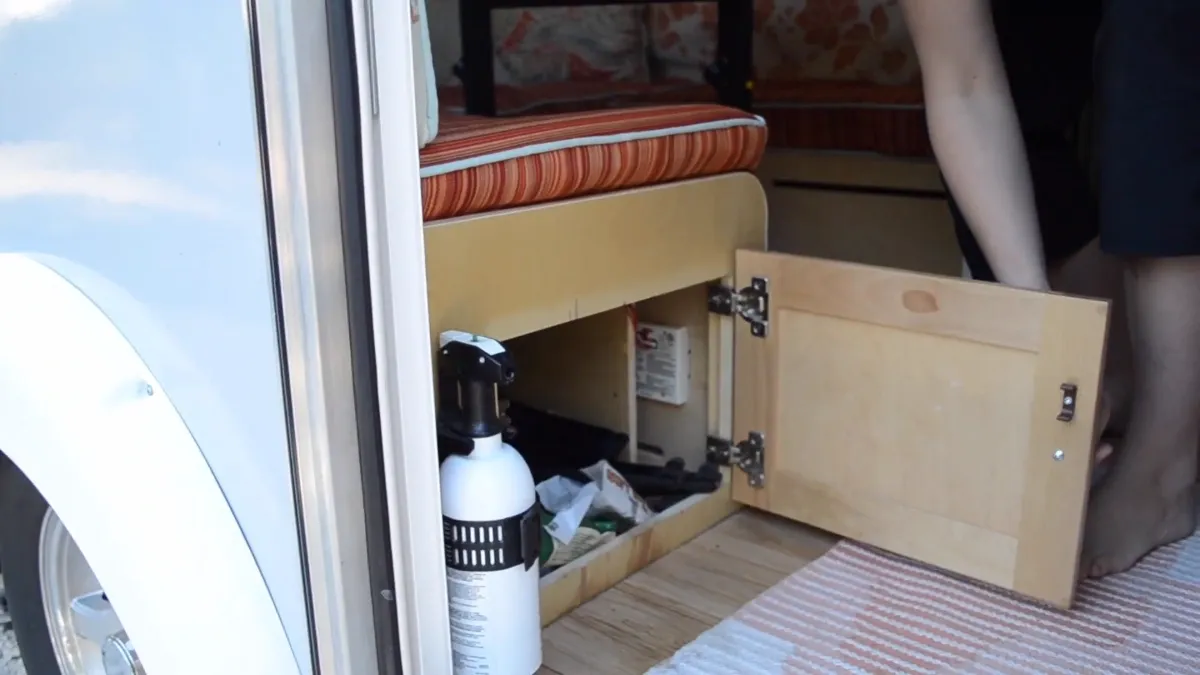
Other bins catch the odd bits: toiletries, a couple of bulky coats, stuff you don’t need daily but miss when it’s gone. It’s the exact opposite of a junk drawer—intentional clutter, if that’s a thing.
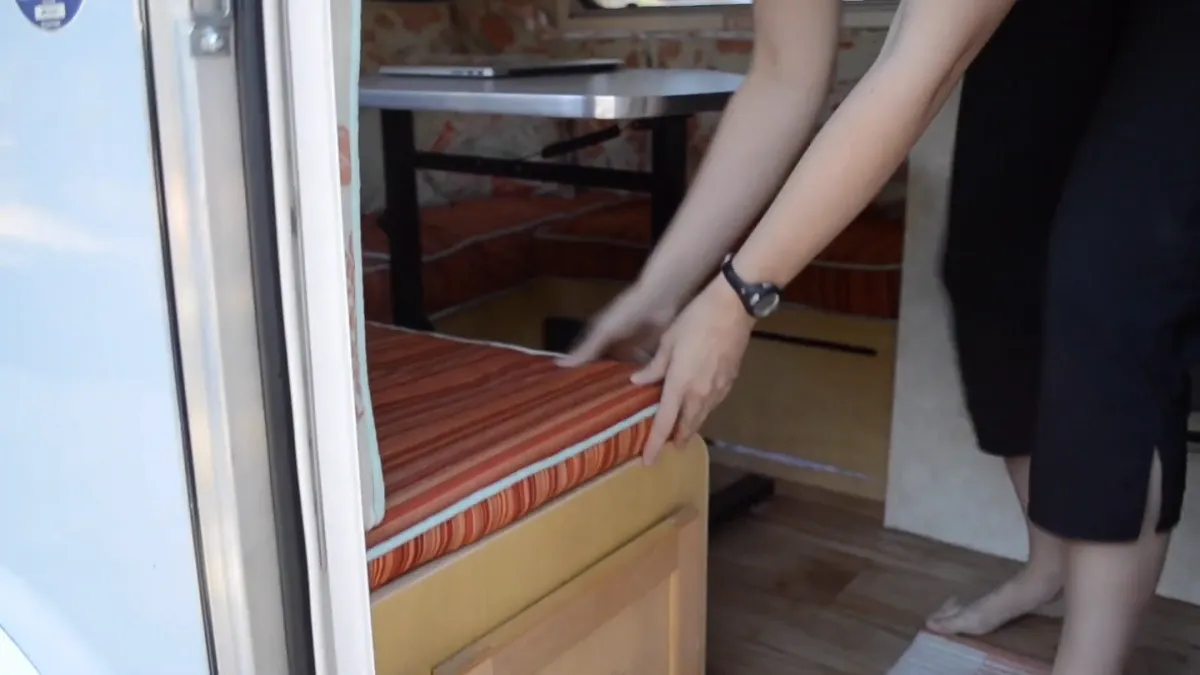
There’s a neat party trick where the table swings up and locks into place. Dinner, laptop stand, game board—then gone again when the bed calls.
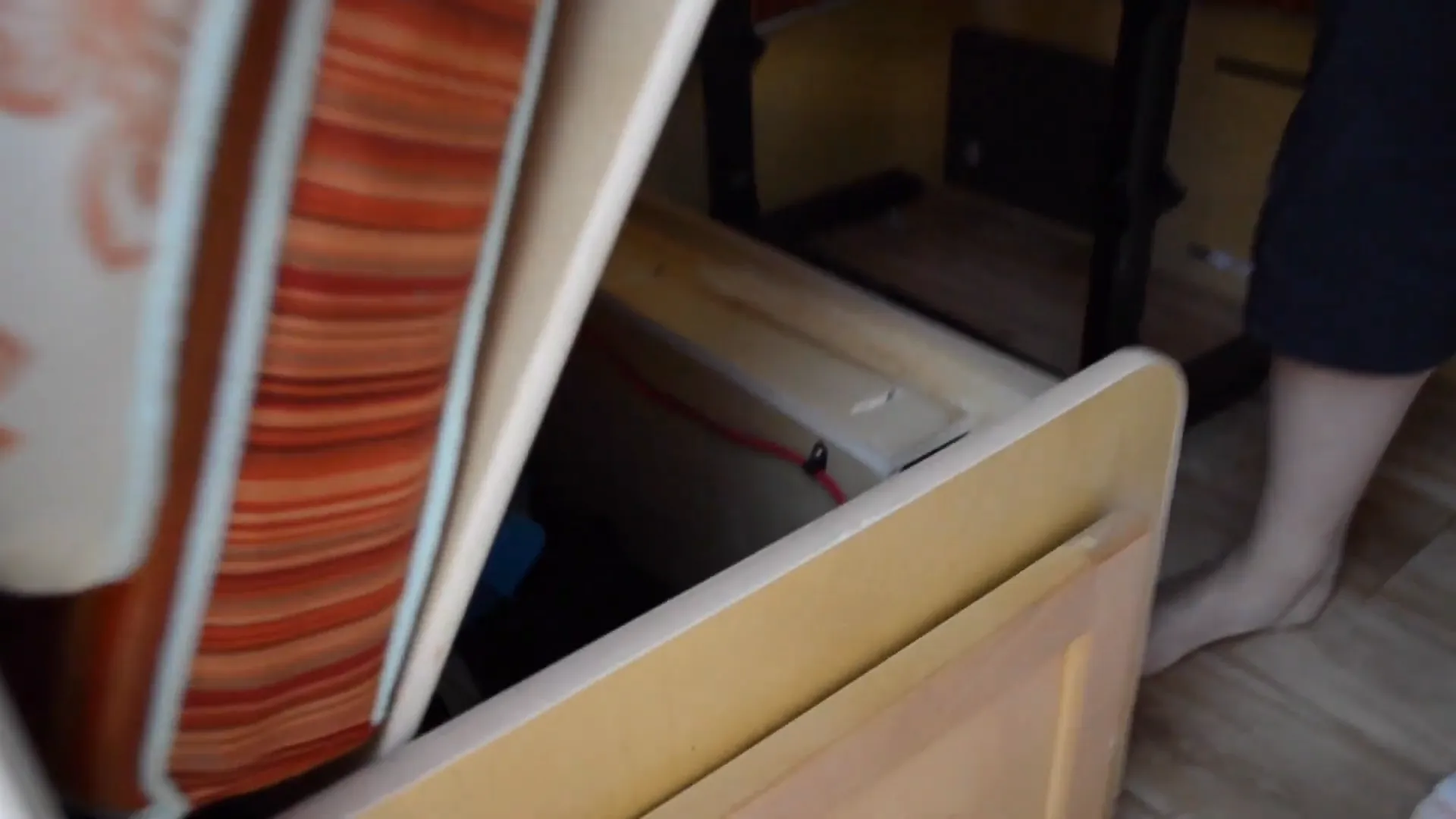
The Kitchen Is Small But It’s Busy
Keys on a hook, water filter on the counter, sink ready to go. The French press waits beside the kettle like a morning ritual laid out the night before. Everything earns its square inch.
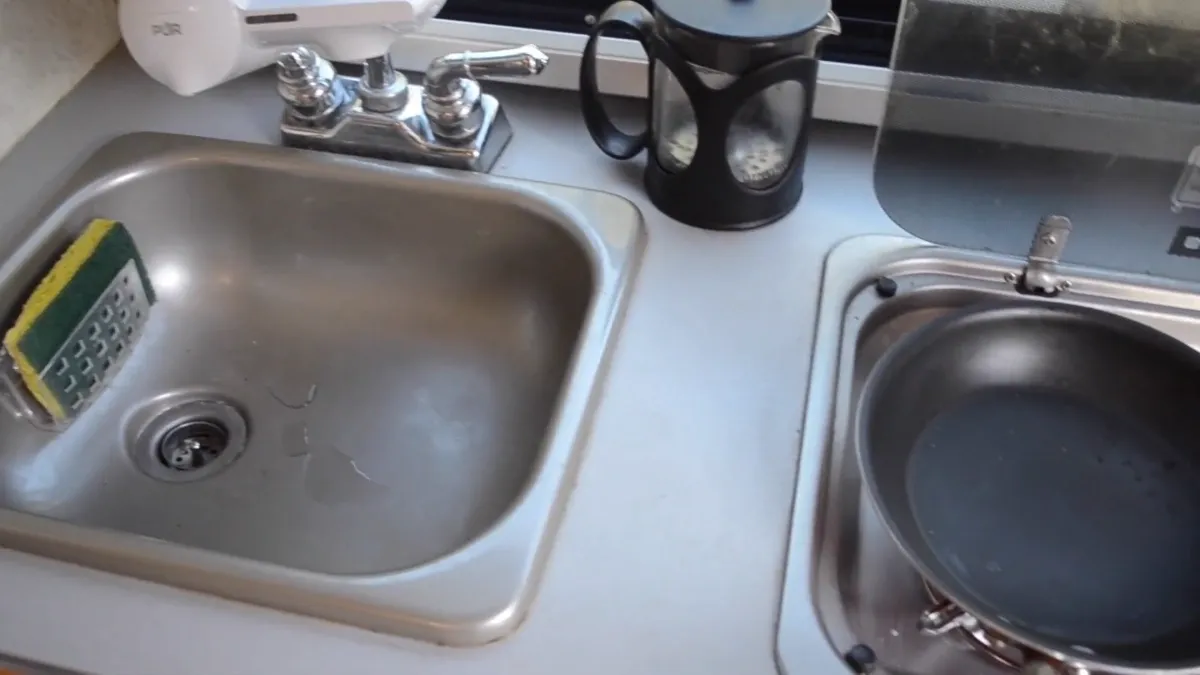
Up in the cubbies: rice, coffee, tortillas—staples with a long shelf life and a lot of flexibility. Spices tuck into corners for the little flavor wins.
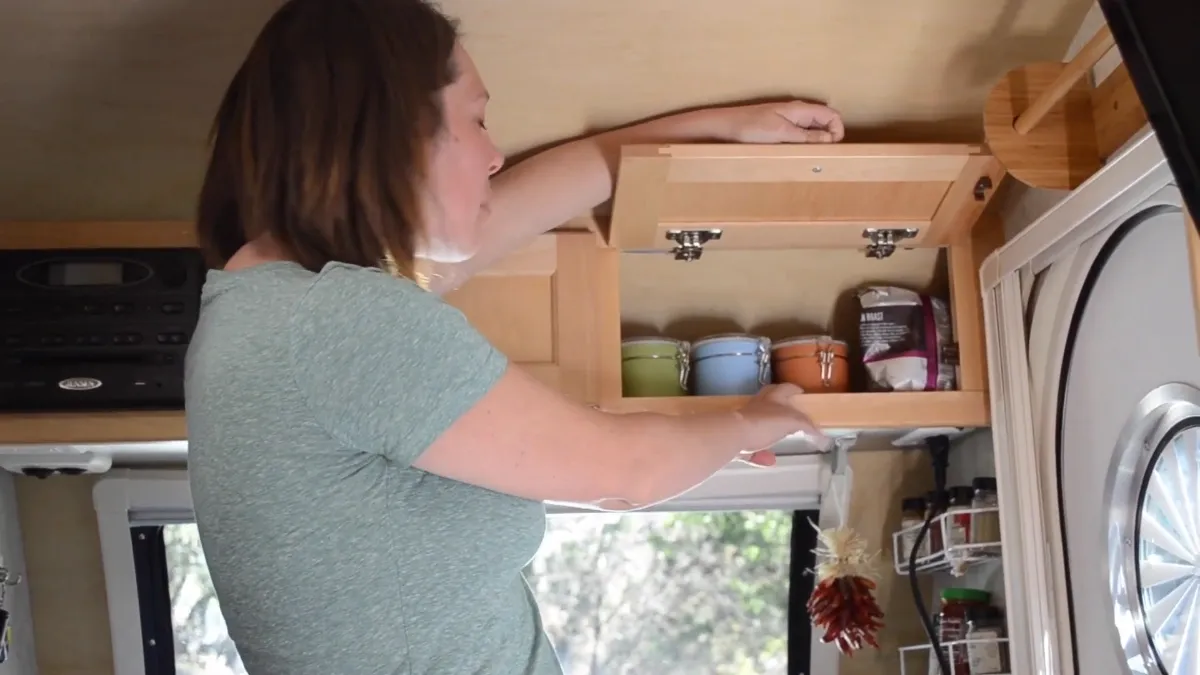
Cups, bowls, and teas up top, heavy stuff down low. Pots, pans, and silverware stack cleanly so nothing plays avalanche when the door opens.
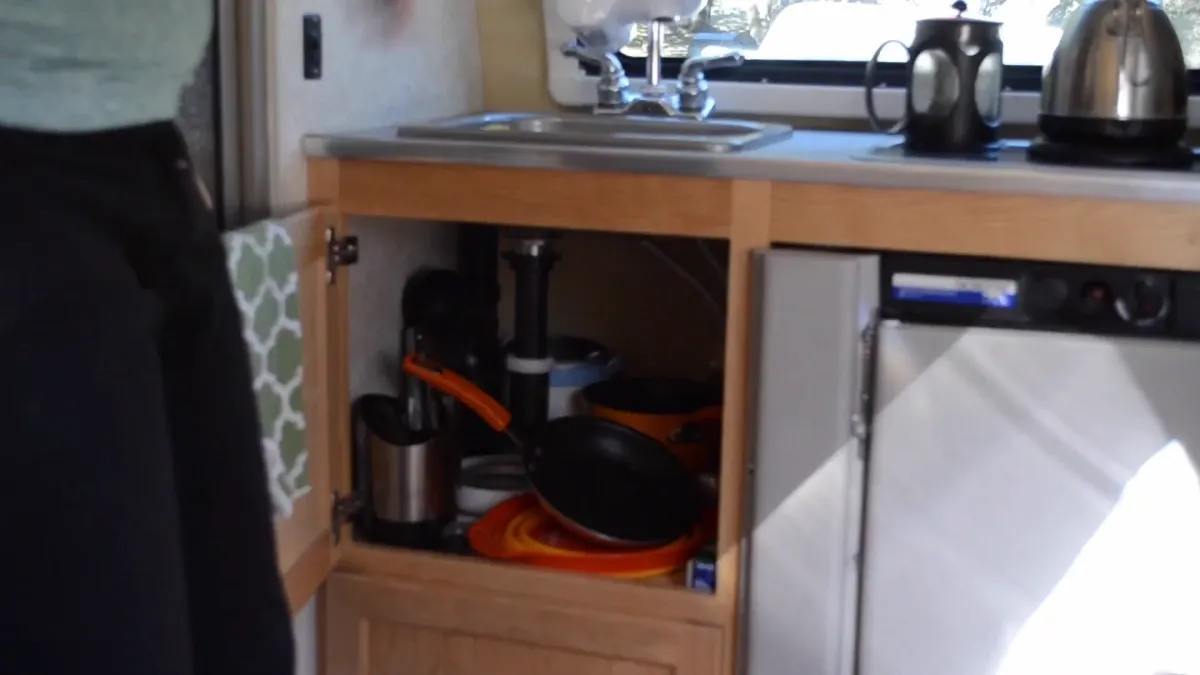
Little Systems Keep the Whole Thing Rolling
A tidy water tank feeds the sink, with a mini fridge pulling its weight beside it. The basic triangle—cold, clean, reachable—is all here.
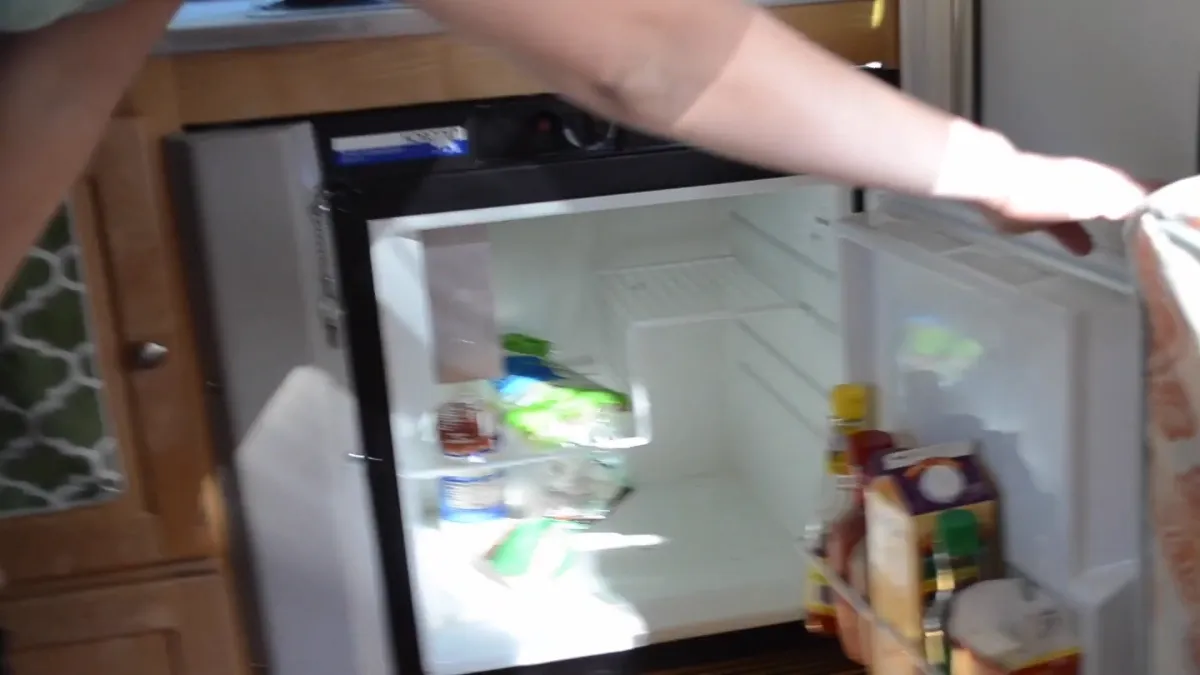
There’s a shoe cubby by the door that quietly prevents 90% of floor chaos. Small space, big difference.
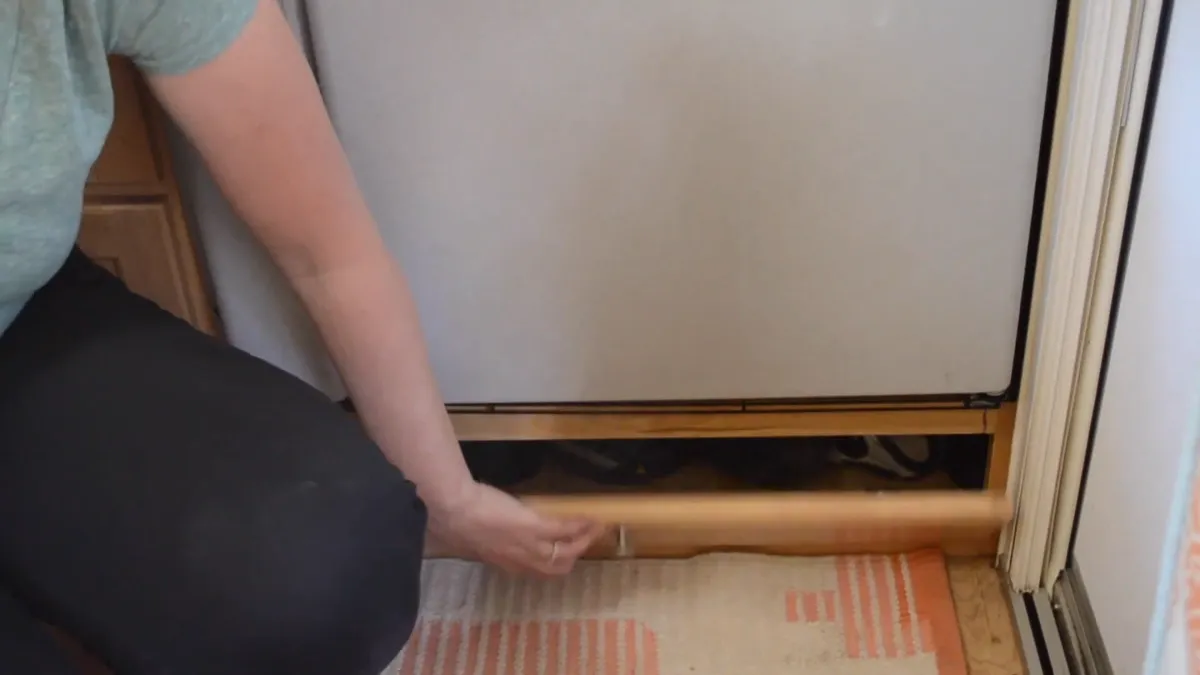
Outside, a bright porch light and exterior outlets make night cooking and string lights easy. It’s the campsite version of turning the kitchen into the party.
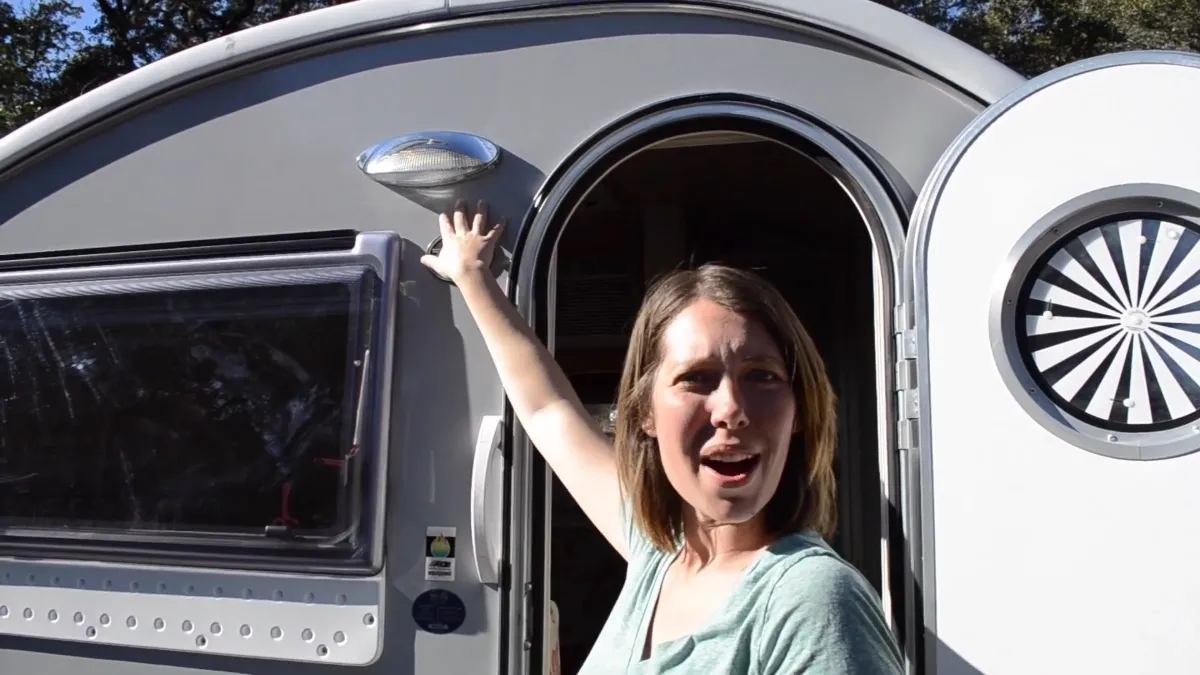
Plumbing’s organized too: black tank for the toilet, gray for sink and shower. Not glamorous, very important.
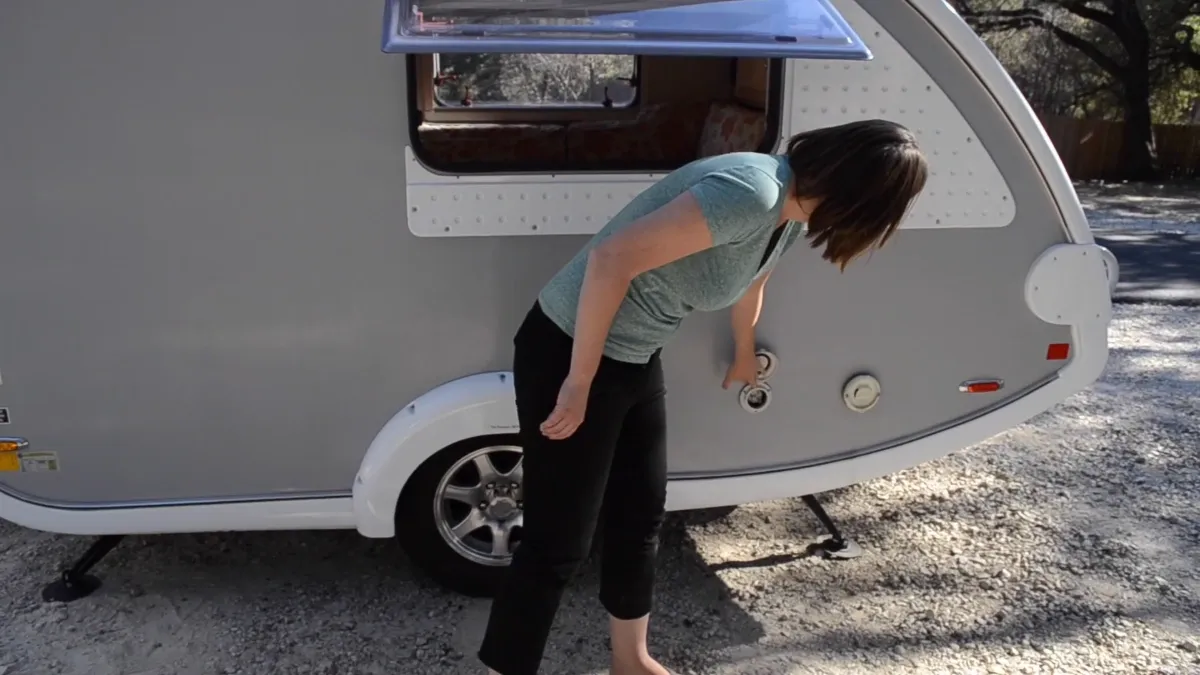
Propane and battery sit tucked away, ready for dry camping when there’s no plug to be found. Off-grid doesn’t have to mean uncomfortable.
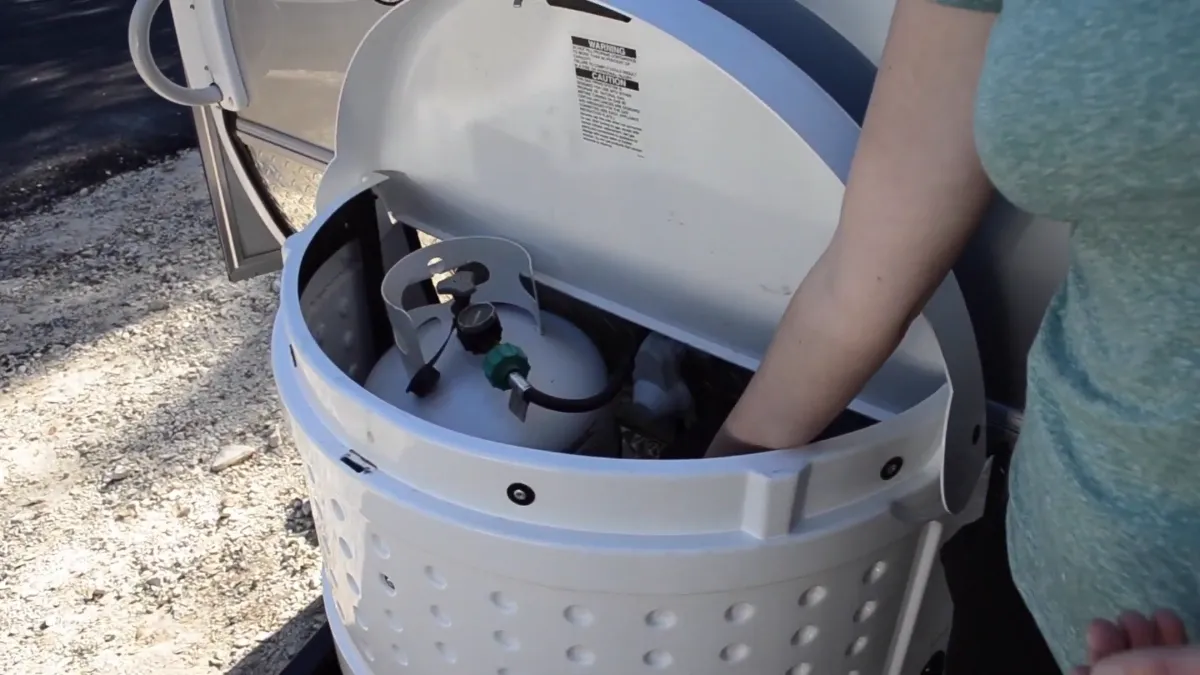
Work Still Happens, Just With Better Views
Jessi codes full-time as a web designer, and Valerie’s the logistics brain who keeps the route, reservations, and a thousand little details humming. It’s a two-person team with a lot of moving parts—and somehow it runs smooth.
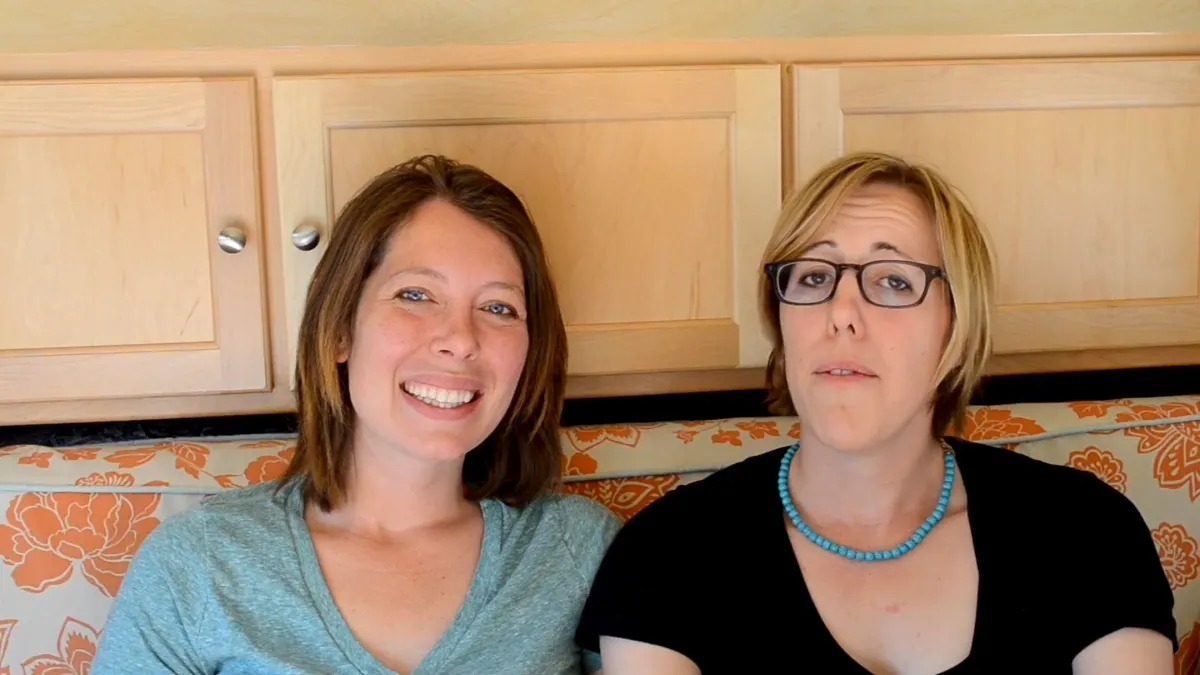
RV parks are like tiny resorts—full hookups, hot tubs, even pools sometimes. Easy living when they need a reset day.
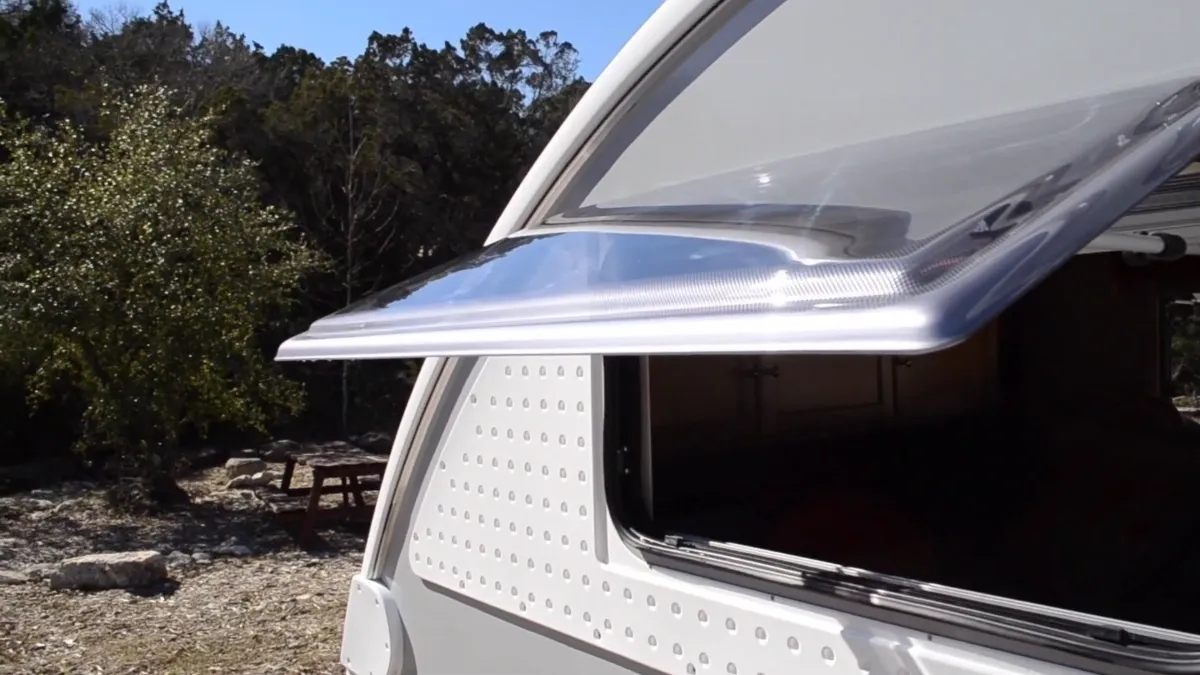
State parks trade amenities for scenery. Ocean camps, deep forest sites—you step outside and it feels like the whole world took a breath.
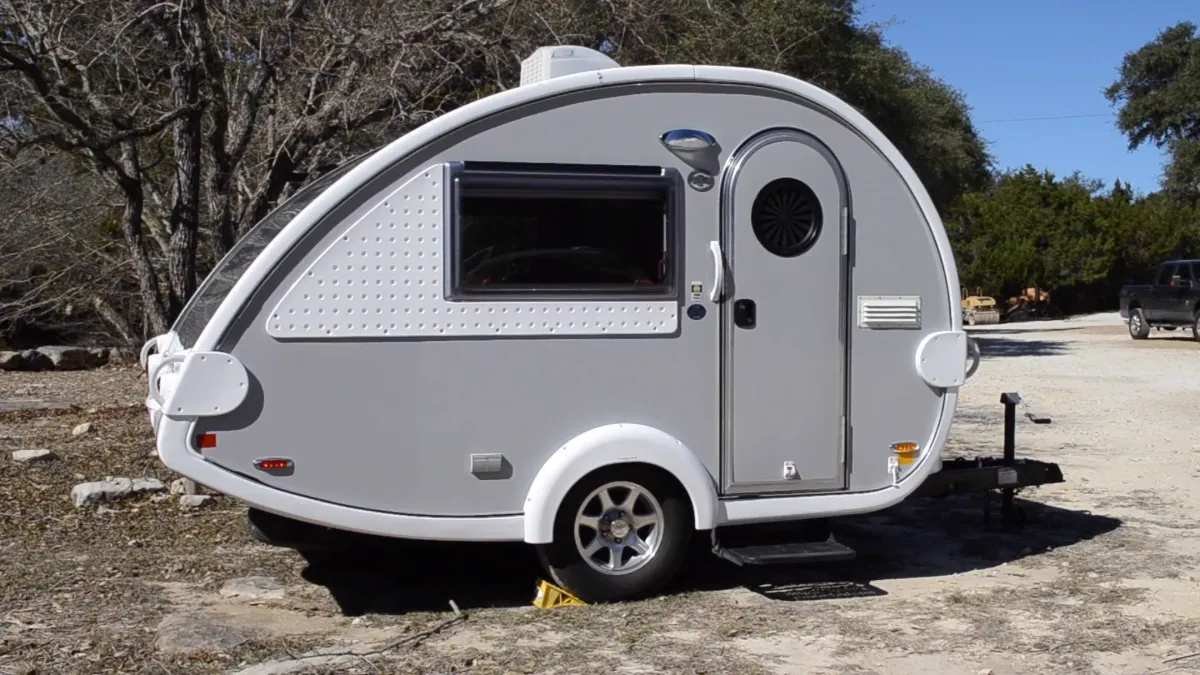
Owning Less Was the Plot Twist
They used to have a three-bedroom house—guest room that was empty most of the year, an office nobody used. A lot of square footage, not a lot of meaning.
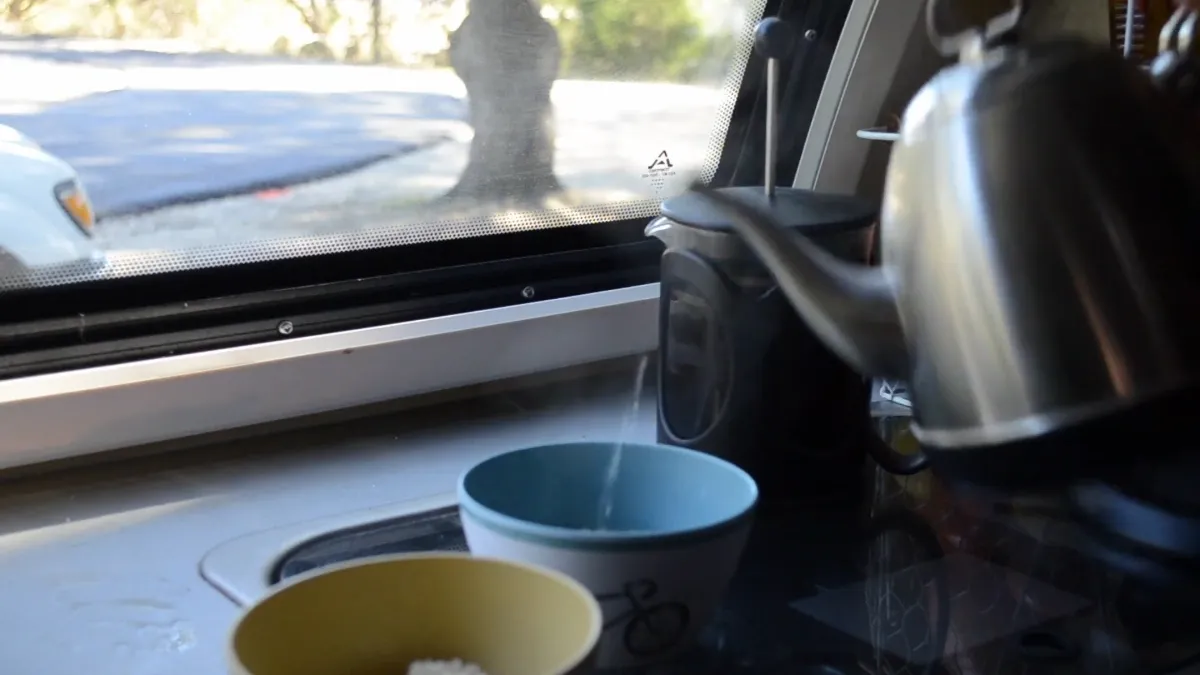
Now it’s just what they use, nothing extra. Less to clean, less to maintain, more time for sunlight, good food, and the next road out of town. Turns out freedom can look like a tiny trailer and a wide-open map.
